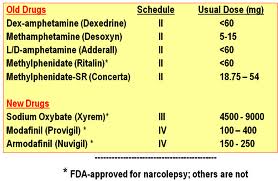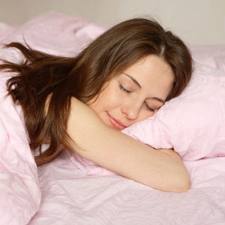Melatonin side effects may interfere with your health, even though melatonin has been used to treat sleep disorders for some time. Those who may be considering adding to the sleep aid should be fully aware of the risks involved. To understand the effects, consider how melatonin in the body.
Melatonin is a natural hormone produced in the body. It helps to control the natural sleep-to-wake cycle, or the natural rhythm of the body to know when to sleep and when to wake up. Melatonin levels are highest just before it was time to go to bed. The hormone running through the blood to encourage you to go to bed.
The sleep cycle is regulated by your exposure to light and darkness. When exposed to light, the retina sends a message through the nerve pathway in the brain to let you know that it is time to wake up. In the hypothalamus, a brain specific above chiasmatic nucleus (SCN) responds by sending messages to other body parts to get you moving, including hormones. It sends exactly the right hormones in your body to stimulate, including cortisol. It also regulates when your body makes hormones to help you sleep
In physical form, no side effects from melatonin. It is a hormone that is regulated by the SCN is generated only when it gets dark. Some have the pill form of melatonin to help encourage sleep, believing that adding more to the system would only encourage more sleep. It is often used to treat insomnia or other sleep disorders.
When melatonin is released into the body from the SCN, will start to get tired. The amount of melatonin in the body peak and begin to feel less alert. Want to sleep. This level of melatonin can be high for as long as 12 hours. The light from the new day will cause the body to stop its production.
Melatonin is available in many health food stores and are often advertised as a cure sleep. It is the only hormone available without prescription in the United States. The Food and Drug Administration (FDA) does not regulate the production or control production of the hormone, as do other drugs. This raises a number of problems with over-the-counter melatonin:
* There is no FDA monitoring of the companies that manufacture the
* A typical dose of the synthetic product often contains 1 to 20 times the amount of melatonin in the body
* The side effects need not be included in the package
* When administered to animals, can cause changes in blood pressure and decreases fertility
* There is a high risk of disease, especially in patients who have heart-related problems
Melatonin Side Effects
The effects of melatonin can cause several problems in patients. When naturally in the body, melatonin has no negative side effects, but makes you sleepy.
Synthetics or natural hormones are not administered under a doctor's care can cause a number of side effects. Side effects vary from one person to another and their severity can also vary:
* Daytime sleepiness, even after a restful night
* Dizziness, spinning room
* Headaches, sometimes severe
Abdominal pain and discomfort;

















































